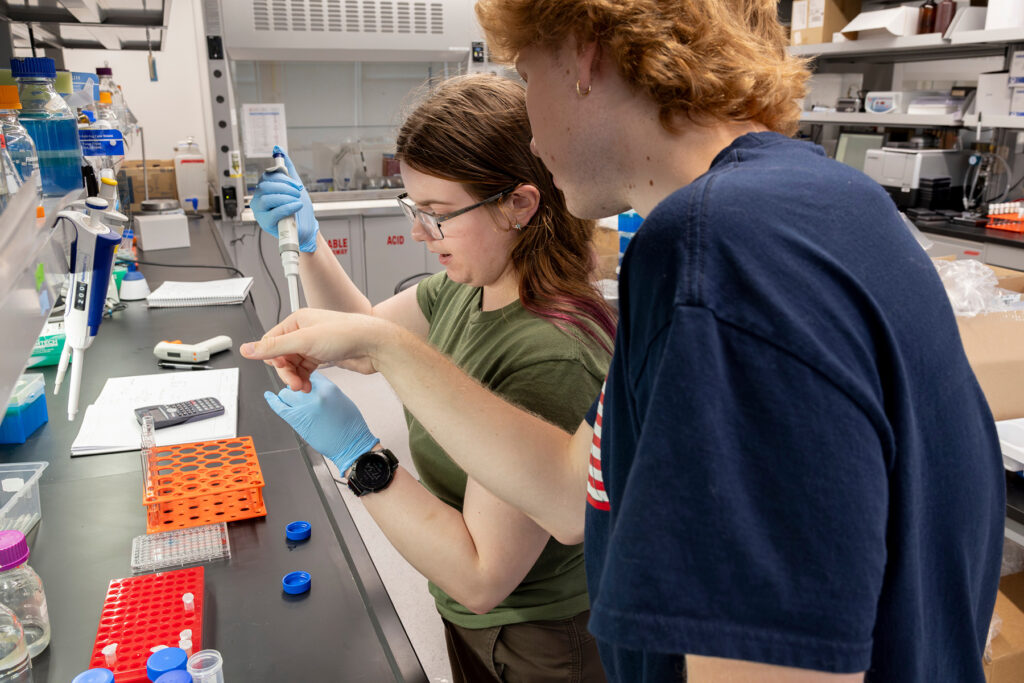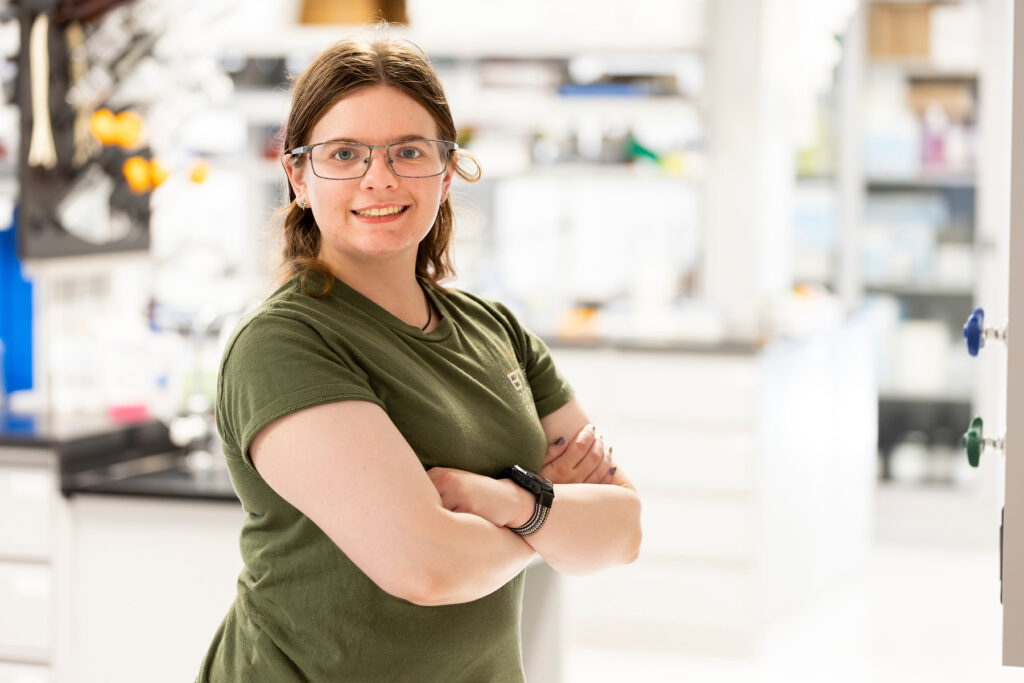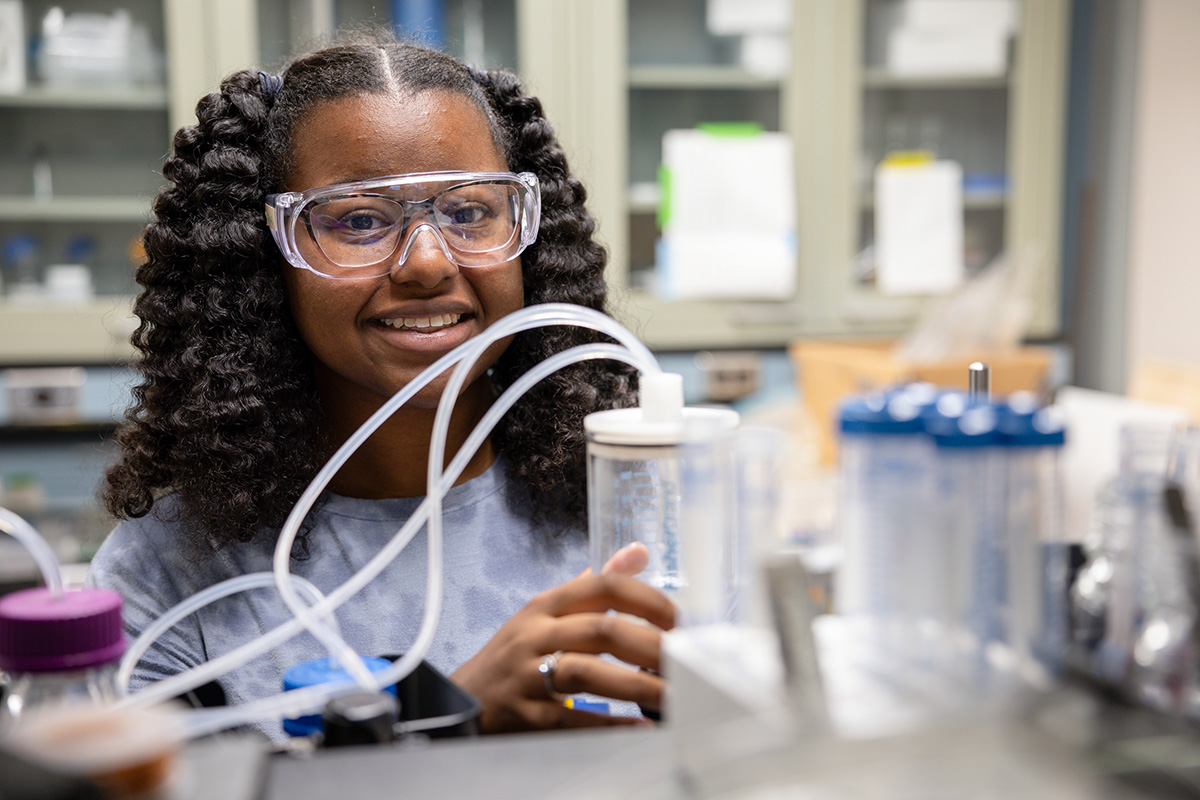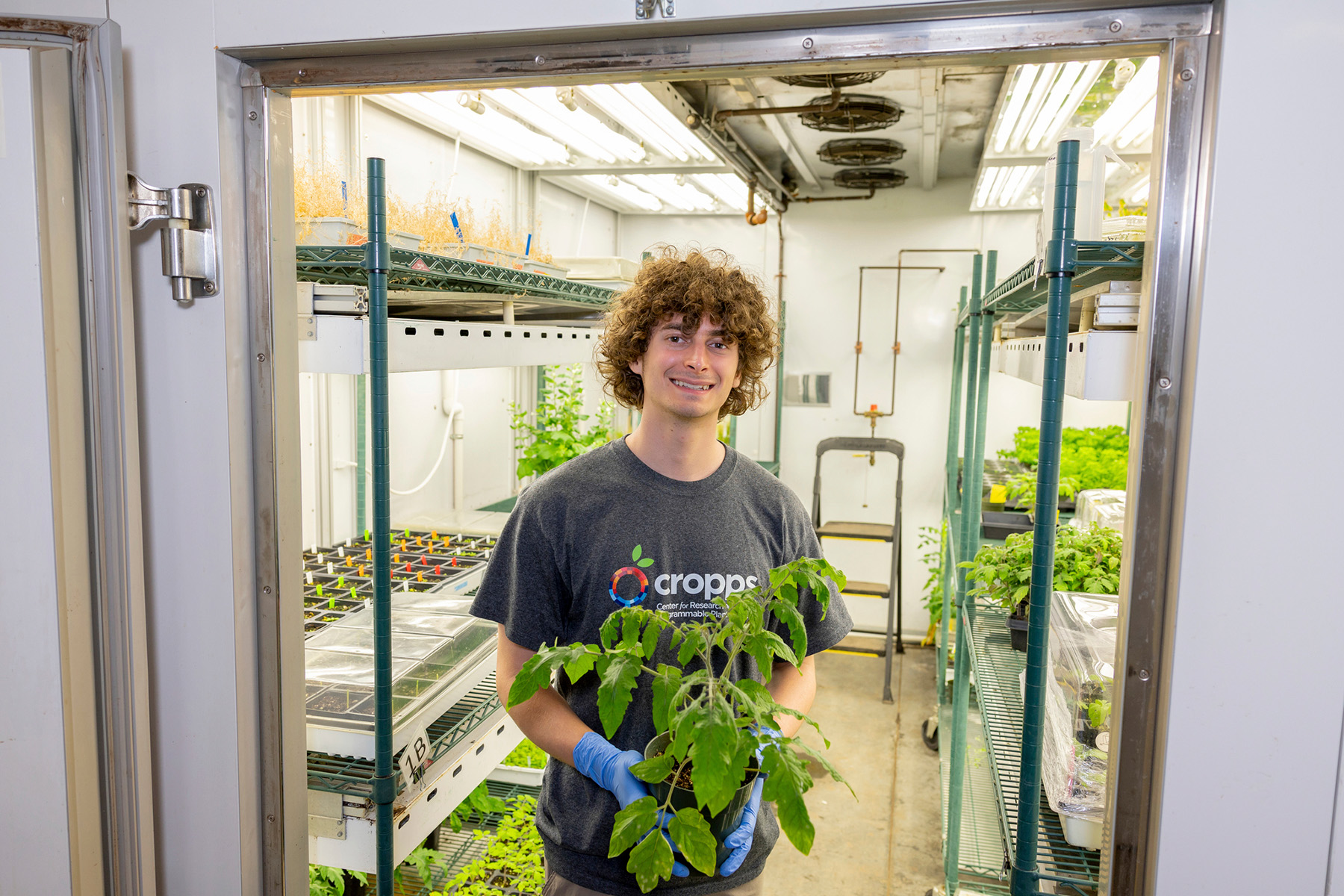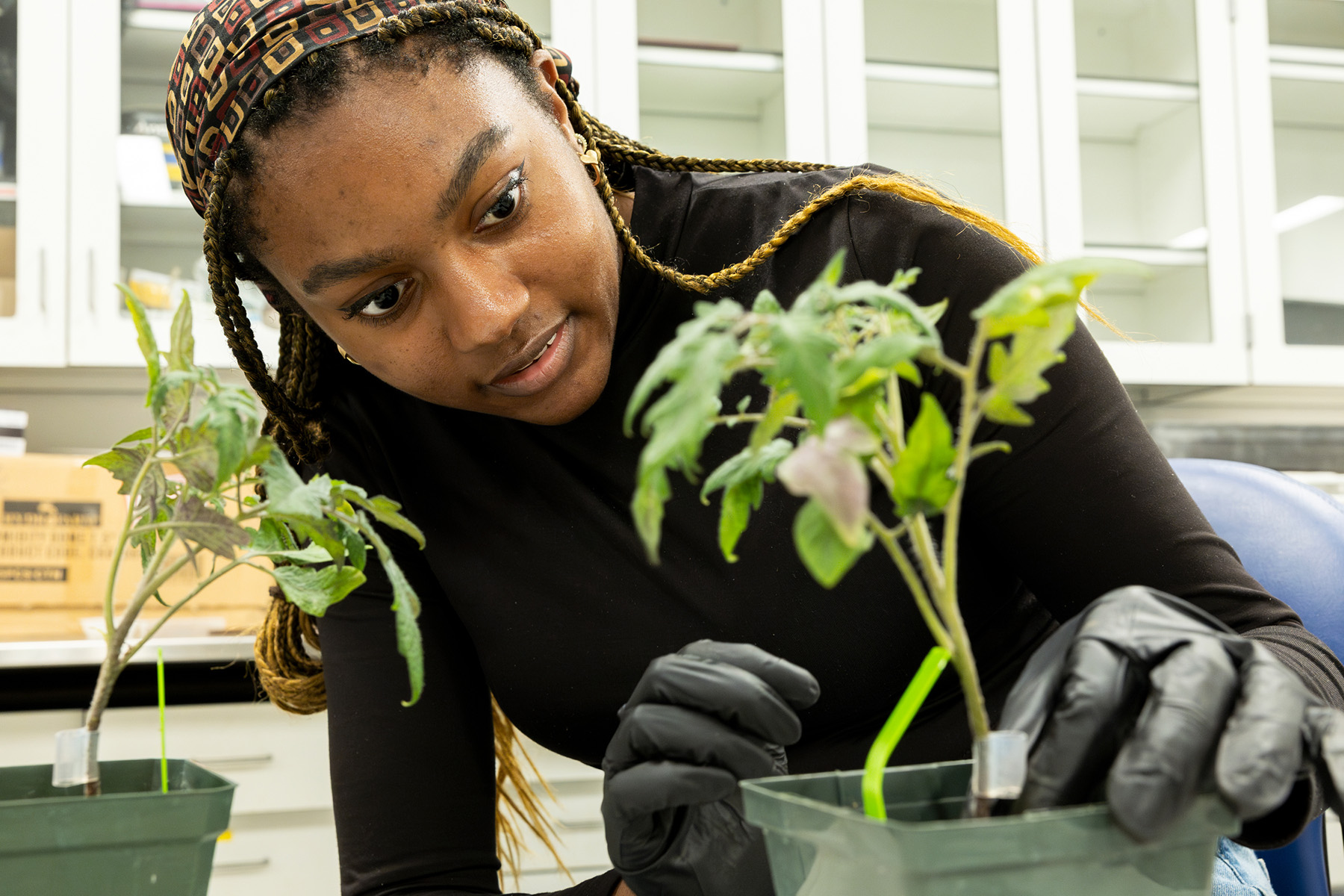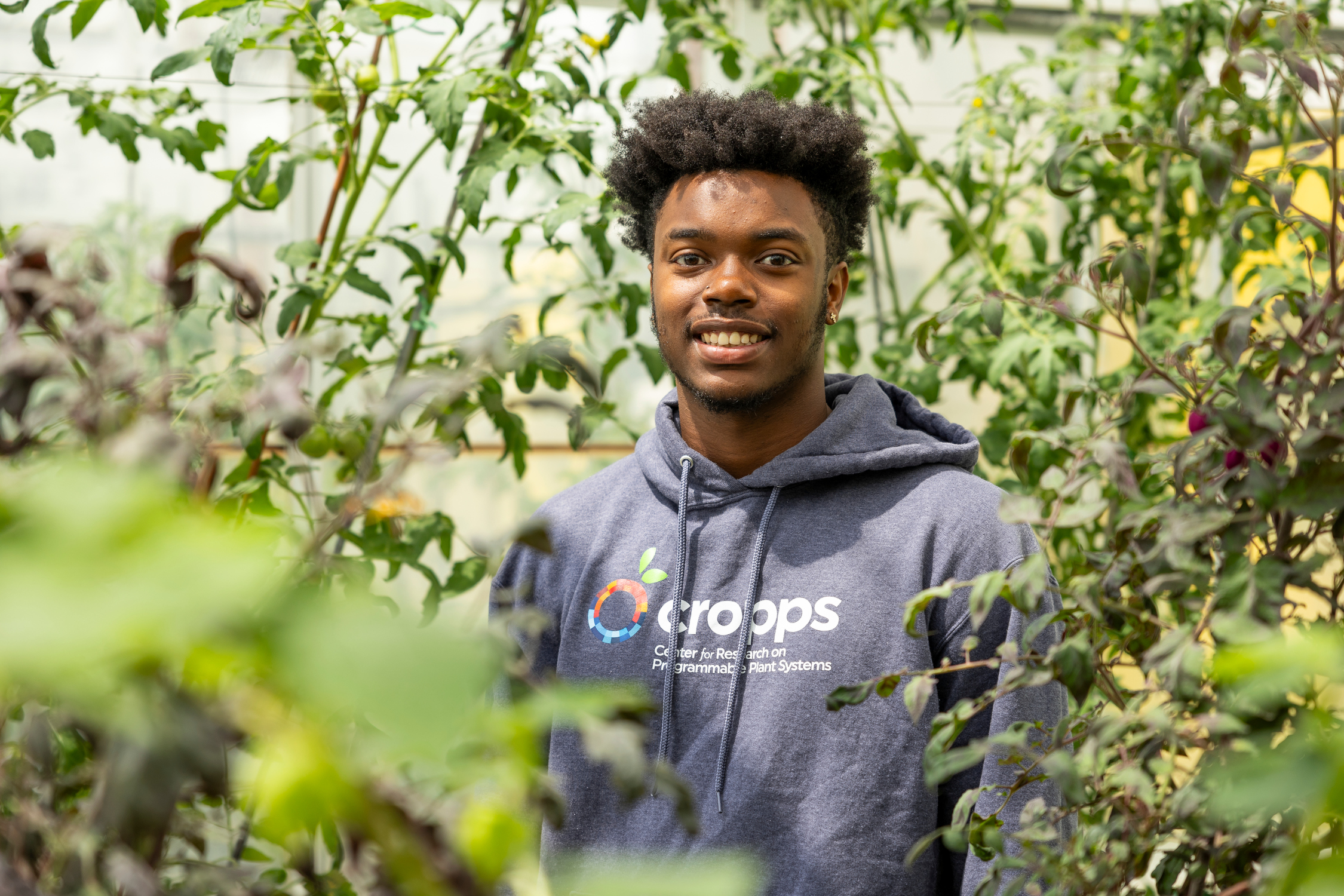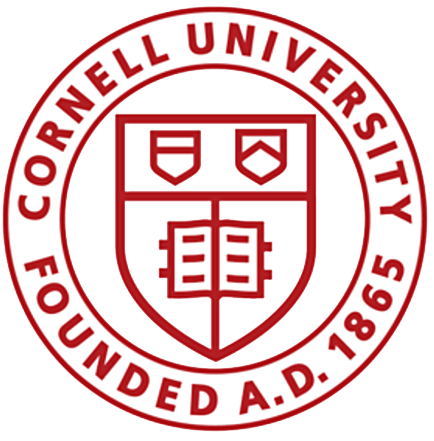Explore the world of research as we delve into the experiences of summer scholars with the Center for Research on Programmable Plant Systems (CROPPS). Join us in conversations with budding researchers as they walk us through their time in the Research Experiences for Undergraduates (REU) program for CROPPS hosted by the Boyce Thompson Institute (BTI) on the Cornell University campus. Gain insights from students Dahlia Isabella Bolt, Lexi Ellis, Jack Greger, Oge Okpala, and Kohl Perry as they engage in discussions about overcoming challenges and revealing the secrets to successful innovation.
Exploring the World of Research
An Inside Look with Dahlia Isabella Bolt from the CROPPS REU Program
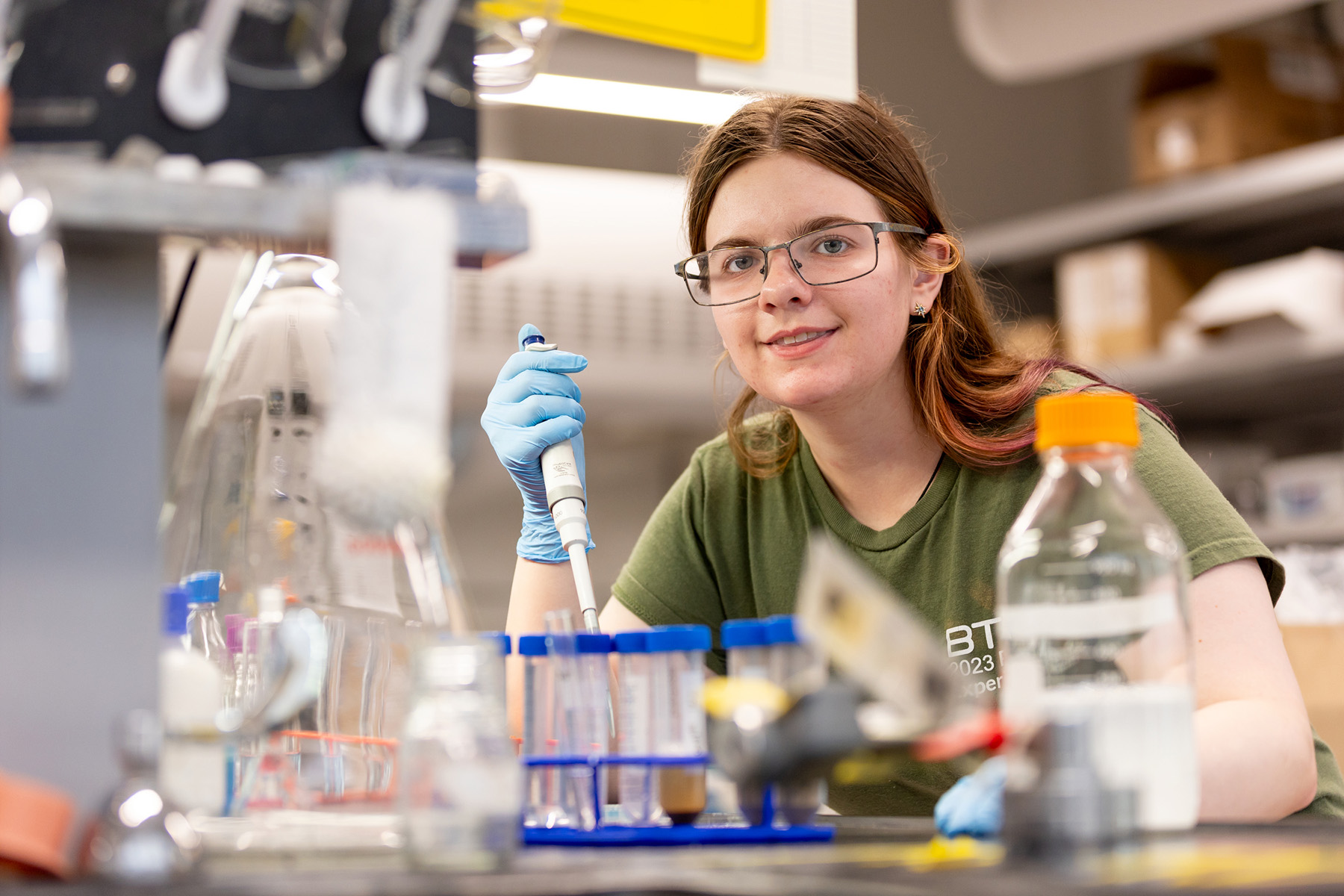
Dahlia Isabella Bolt
- University: New York University
- Major: Chemical and Biomolecular Engineering
- Graduation year: 2024
- Hometown: Sodd Daisy, Tennessee
- Project: Revealing the Occurrence and Diversity of Polyphosphate Accumulating Organisms (PAOs) Communities Across Maize Genotypes and Growth Stages
- Mentor: April Gu
The CROPPS program combines researchers from plant sciences, engineering, computer science, and the social sciences into an integrated program to plant biological research and translation. Tell us about your REU project with CROPPS faculty and fellow students
“Phosphorus (P) is an essential nutrient in agriculture, and models predict mineral stores will be depleted within the next hundred years. Additionally, most fertilizer used in current farming practices is wasted and runs off, leading to unnecessary costs and pollution, so alternatives to current P utilization is essential. The use of biotechnology is often overlooked in P utilization studies, which is where we look. In the Gu lab, I study polyphosphate (polyP) accumulating organisms (PAOs) in the rhizosphere and their diversity in species and relative abundance across several maize genotypes. I assist with sample collection by attending field work and extracting samples. In the lab, I create the reagents needed for sample processing in addition to helping with the processing itself via weighing, centrifuging, mixing, and staining.”
What drew you to join this project?
“What drew me to this project is my passion for phosphorus (P) research. In the past, I studied how it affects vitamin C production in kale, which is an essential nutrient many people today do not get enough of, and seeing how P was even more important than I previously thought to agriculture excited me.”
CROPPS believes in the power of mentorship for young scientists. Tell us how that mentoring process unfolded for you through your REU summer
“Mentorship is so important for a young scientist because it allows one to have a source for information about the academic world that they would likely not have access to without their mentor. Mentors provide a clearer window into the world of academia that the internet or a formal connection could not provide; mentors are more likely able to be more personal and explain things in a way textbooks and conferences likely could not.”
What is the biggest scientific challenge you want to tackle as you progress in your career?
“One of the biggest scientific challenges I wish to take on as I progress further into my career is the global issue of biofortified foods. It is a multifaceted problem as on one hand, crops can die if they take up too many nutrients (such as iron, for example), but on the other hand, crops that can handle that uptake (engineered or wild-type) may leave the fields barren for the next growing season. This is an issue I wish to look into further.”
What has been your favorite part of the REU program?
“My favorite part of this REU program has been the great deal of socialization and interaction with other scientists in the lab. It has shown me how real research within a lab is truly collaborative and has allowed me to grow more as a scientist.”
How has this summer experience prepared you for the future?
“This program has prepared me for my future research by providing me with realistic expectations of what it means to be a scientist and what that workload looks like. Additionally, it gave me necessary lab skills such as writing a proposal and using lab equipment found in any lab across the globe.”

